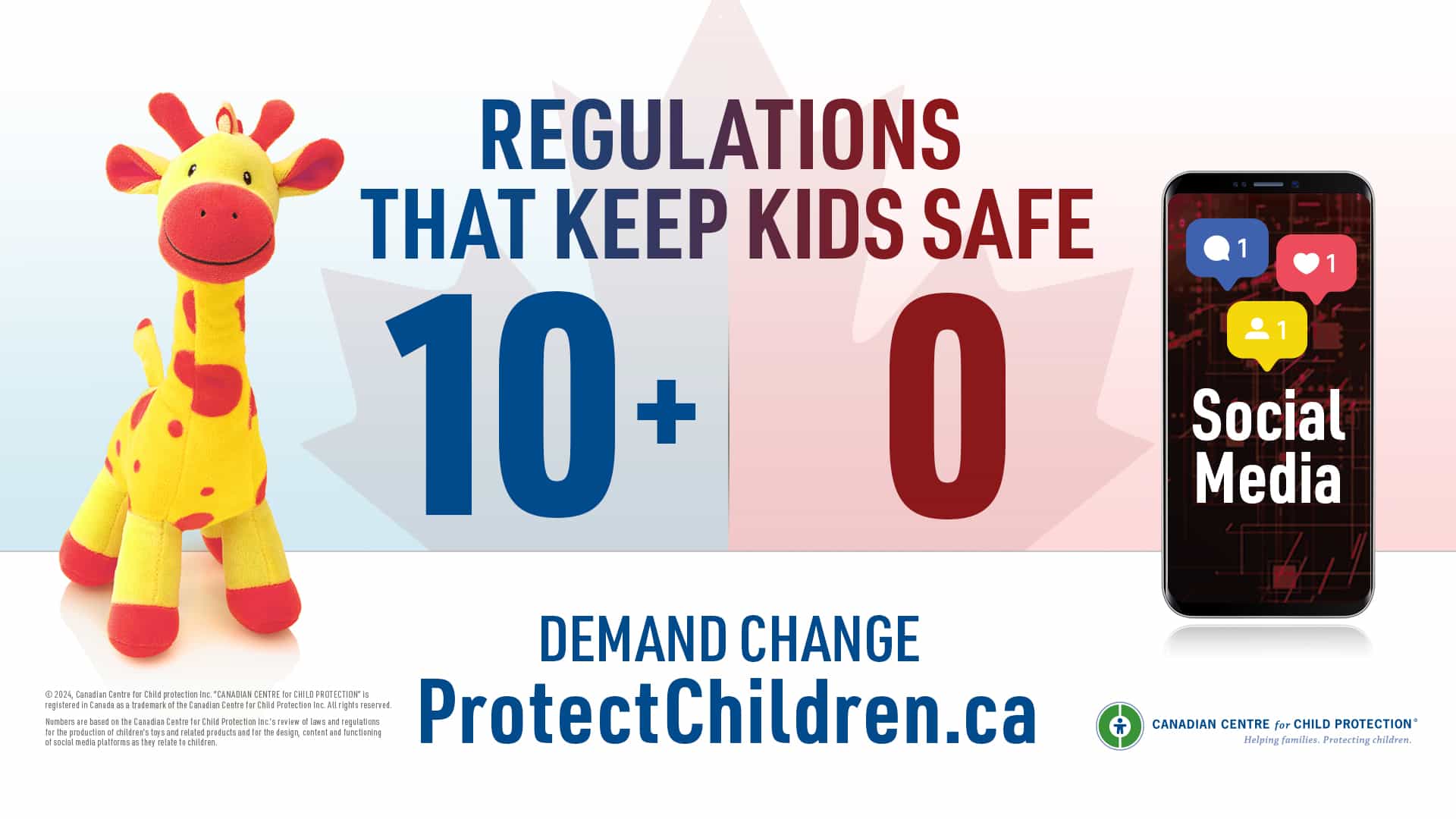C3P Supports Enhancing Online Safety of Canadian Children
Every day, the online platforms that profit from the attention of our kids put their safety at risk. We are on the front lines witnessing the dangers and violence children and survivors of child sexual abuse face on an unregulated internet.
Tech companies have failed to act voluntarily. They have had 20 years to demonstrate a commitment to keeping children safe online and yet today the harm facing kids is more rampant than ever. Unlike offline, where governments have rules and regulations for products, companies, and spaces that serve children, the online equivalent is non-existent. The responsibility has solely — and unreasonably — been placed on parents.
For years, C3P has been advocating for government action that mandates online safety standards. We are pleased to see that the Government of Canada introduced this bill, entitled the Online Harms Act, and taken an important step in moving forward with protecting citizens online — particularly those most vulnerable to sexual abuse and exploitation.

Why do I, a victim, not have any rights to protect myself? For years I’ve been trying to have my photos removed from the web. Why can’t my abusive material be automatically detected on messaging platforms? I’d like someone to explain or to admit accountability why they feel it’s okay for me to be victimized over and over again daily because they can’t, or won’t, use tools that will remove the capturing of my abuse.
Public opinion on industry’s role in protecting children online
22,000+ people have completed C3P’s short survey asking the public to weigh in on the responsibility industry bears in protecting children online, with these notable results:
- 85% felt a technology company who does not remove child sexual abuse material on its service should be criminally charged.
- 89% felt governments should pass laws that require technology companies to meet safety standards that include penalties for non-compliance.
- 95% felt that technology companies who are notified that stolen images of children are being reposted/shared in a sexual context on their services and platforms should be required by law to remove the stolen images.
It’s clear that there is an urgent need for change.
The thing that most people don’t understand about the impact of CSAM is that it never goes away. The mental damage it deals casts a shadow on the rest of your life, a specter haunting everything you’ll ever do. But the actual files themselves never go away either. They get traded and spread through the darkest recesses of the internet to be looked at forever.
Some people talk about defending people’s privacy, but what about the privacy of survivors? What about the images and videos of their prepubescent bodies being violated to feed the perverted urges of an adult, an evil adult? My biggest hope is that when writing laws and creating policy related to survivors of CSAM, people remember that the files, images, and videos are just as harmful as the acts of sexual abuse themselves.
One of the first times I witnessed strangers engage in sexual activities it was a grown man and a little girl. Unregulated internet spaces provided my stepfather free access to the child sexual abuse he used to groom me from a young age. It helped him normalize the production of my abuse material.
Tech companies have been allowed to operate unregulated without regard for how harmful their services can be to survivors and children and they aren’t going to change unless they have to. Canada needs regulation to require that tech companies remove harmful and illegal content to prevent more stories like mine.
Families have the right to feel confident that their children are protected in the online world and not to have experienced the traumatic events that my family has gone through.
The digital space now demands comprehensive safety measures. The Canadian Online Harms Bill serves as an additional layer of protection, keeping our children safe in these digital realms.
On February 19th of [2022] our son Daniel took his life after being a victim of an online organized sextortion ring. He was 17 years old. Every day our family has to wake up to this nightmare. This was not his fault.
Every time I read an article about a child being victimized online, it always goes back to the parents — watch your child online and have the hard conversations. We did all those things. We talked to them whenever we read about a new risk online. Despite our online safety coaching; a Nigerian scammer posing as a young women coerced Danny into sharing intimate images of himself over Snapchat. These predators then used the images to blackmail him. He emptied his bank account of the $300 he had, trying to pay them off. That wasn’t enough for them and they kept up the demands or his image was being released to all his family and friends. Danny felt backed into a corner and like he was the criminal. Our family now tragically knows how easily anonymous online terrorists can access children.
We ask you to please consider regulatory bills that will force social media companies to make their products safer for our children. We ask you to think of Danny.